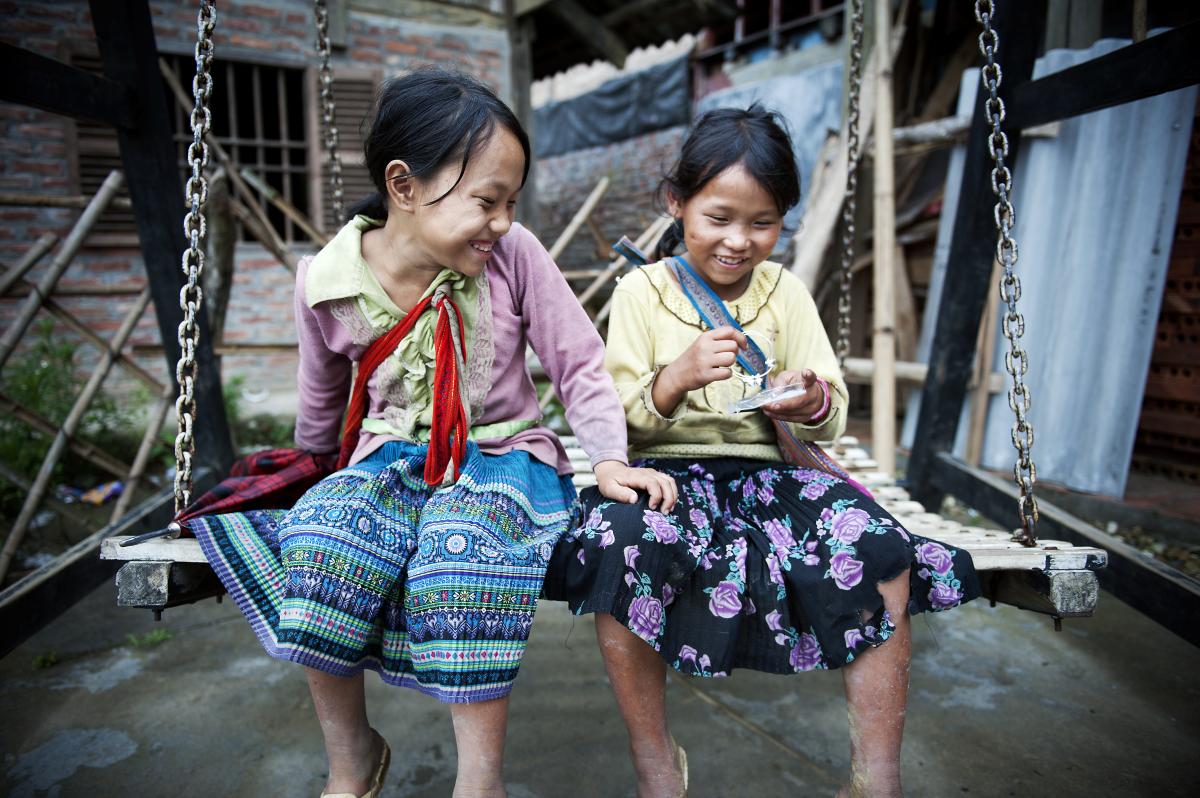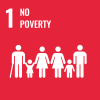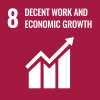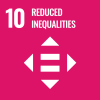
INTRODUCTION
From its founding, 80 years ago, the United Nations has recognized the importance of promoting social progress and better standards of life in larger freedom. Shortly after the signing of the UN Charter, the Universal Declaration of Human Rights (1948) enshrined fundamental economic, social, and cultural rights, including the rights to an adequate standard of living, freely chosen employment, education, and social security.
As more countries—many newly independent—joined the UN in the following decades, development issues gained prominence in the international agenda. Initiatives such as the First Development Decade (1960-1970) included measures to eliminate illiteracy, disease and hunger. The International Covenant on Economic, Social and Cultural Rights, in 1966, set out a broad range of fundamental rights as legal obligations to state parties, including the right to work in just and favourable conditions, the right to form and join trade unions, the provision of social security and the right to food, clothing and housing, the elimination of hunger, the right to physical and mental health, and the right to education.
THE 1995 SUMMIT: A TURNING POINT
While the World Summit for Social Development, held in Copenhagen in 1995, was not the starting point of the UN’s engagement with social issues, it represented a pivotal moment. It gave a strong political foundation and unified the sectoral development mandates emanating from earlier agreements. At the Copenhagen Summit, Governments committed to addressing the social dimension of development in an integrated way. They conceived social development both as a process and as a goal. As a process, it involved advancing social justice, solidarity, harmony, and equality within and among countries. The goal was to ensure the well-being of all people and the harmonious functioning of society, notably by addressing key priorities through ten agreed commitments – including eradicating poverty, promoting full employment, and promoting social integration.
Governments stressed the importance of placing people at the center of their decisions and joint actions towards sustainable development. The focus on a people-centred (or social) approach to development must be understood within the Summit’s historical context, including the end of the Cold War and the prevailing economic policy approach to development. As geopolitical tensions eased at the end of the Cold War, the dominance of peace and security in multilateral settings diminished, opening space to address development and social issues. The international community began to stress the importance of social and economic progress for lasting peace.
The two previous decades saw the rise of the neoliberal policy paradigm, which was premised on the assumption that market-oriented policy reforms and stringent fiscal discipline, including during downturns, would stimulate economic growth and ultimately reduce poverty. Structural adjustment programmes, which typically required cuts in public spending and deregulation, became preconditions for development loans. The human and social costs of such policy measures were often ignored, or were tolerated as a necessary price of long-term economic gains.
Group photo of the Heads of State and High-Level dignitaries attending the World Summit for Social Development in Copenhagen in 1995. UN Photo
Critical voices increasingly raised awareness of these costs and stressed the need for structural adjustment “with a human face”. Rising awareness about the limits of policy frameworks based exclusively on economic growth and efficiency eventually provided momentum for the World Summit for Social Development. By placing people at the center of development and directing economies to meet human needs, as set out in paragraph 26 of the Copenhagen Declaration, the Summit’s outcome inverted the prevailing notion that social development came second to economic development. The significance of economic growth rested on whether it supported social development.
The uniqueness of the Summit also lies in the political will shown by Governments to tackle social challenges comprehensively, recognizing that social development could not be pursued as a sectoral initiative or in a piecemeal fashion, but required an orientation of values, objectives, and priorities towards the well-being of all. It was at the Summit that Governments clearly stated for the first time, in paragraph 6 of the Declaration, that economic development, social development, and environmental protection were interdependent and mutually reinforcing components of sustainable development.
FROM COPENHAGEN TO THE 2030 AGENDA: SHAPING A PEOPLE-CENTRED, INTEGRATED DEVELOPMENT AGENDA
The outcomes of the Copenhagen Summit and those of other major global conferences in the 1990s helped shape the international development agenda in the following decades. As policy concerns over growing inequality intensified, the 2030 Agenda for Sustainable Development emerged with a rallying cry “that no one will be left behind”. The 2030 Agenda’s vision, principles, and goals strongly echo the comprehensive, people-centred development framework established at the Copenhagen Summit. The Agenda’s core messages of inclusion and equality align closely with those of Copenhagen. The decision to tackle inequality within countries, in particular, broke new ground. Reflecting the participatory spirit of the Copenhagen Summit, the 2030 Agenda resulted from extensive consultations with civil society and other stakeholders worldwide.
As importantly, in the 2030 Agenda, Member States committed to achieving sustainable development in its three dimensions – economic, social, and environmental – in a balanced and integrated manner. The Sustainable Development Goals (SDGs), according to the 2030 Agenda’s Declaration, are indivisible and balance the three dimensions. Both the Copenhagen Declaration and the 2030 Agenda stressed the need for integrated policy solutions as well. The Copenhagen Declaration, for instance, committed to a framework of action to “integrate economic, cultural and social policies so that they become mutually supportive”.
These two landmark agreements reflect a broad consensus that pursuing economic efficiency and growth must not take precedence over social or planetary well-being. Social goals cannot be pursued post-facto, through redistributive measures. Instead, economies and societies should be structured to foster equal opportunity, decent work, social inclusion, and widely shared prosperity from the outset.
REVITALIZING COPENHAGEN’S BROAD, INTEGRATED VISION
Over time, the 1995 Summit’s broad vision of social development has often been reduced to its three core commitments. The importance of integrated policy solutions has been overlooked, with poverty reduction, employment creation, and social inclusion targets pursued independently—often through narrowly focused strategies prioritizing short-term gains or target symptoms rather than systemic causes. While sometimes yielding success, these fragmented efforts do not address the underlying drivers of poverty, inequality, lack of decent jobs, or exclusion. Such compartmentalized approaches fall short of the Copenhagen Declaration’s integrated, transformative ambition.
With the 2030 deadline fast approaching, the world remains off track to achieve the SDGs. Yet, commitment to these common goals endures, even amid growing challenges. In the Pact for the Future, in 2024, Member States pledged to urgently accelerate progress towards achieving the SDGs, including through “concrete political steps and mobilizing significant additional financing from all sources for sustainable development”.
The international community must continue to use every opportunity to build consensus on the bold political vision and concrete steps needed to accelerate progress and secure it in the long run. The Fourth International Conference on Financing for Development and the Second World Summit for Social Development (2025 social summit) offer critical opportunities to do so.
As the United Nations marks its 80th anniversary and Member States look ahead to the social summit 2025, they face a defining choice: continue addressing poverty eradication, the creation of employment and decent work, and social inclusion as siloed policy areas—or renew the broader, integrated approach to social progress first articulated in Copenhagen.
The World Social Report 2025 (United Nations, 2025) warns that piecemeal approaches are no match for the scale and interconnectedness of today’s challenges. Rising economic insecurity, persistent inequality, eroding trust, and social fragmentation demand coordinated responses grounded in a shared commitment to equality, social justice, and solidarity. The 2025 summit offers a chance to reaffirm the Copenhagen Declaration and reapply its principles to current realities, restoring a holistic vision of social progress as the foundation of a more inclusive, resilient, and sustainable future.
Sectoral policies aimed at expanding access to food, social protection, education, health, housing, digital technologies, and other essential goods and services remain vital to advancing social progress. Member States must consider deepening investments in these areas and reaching concrete agreements to safeguard them in times of crises, when they are most at risk and most needed.
Yet the barriers to sustained social investments lie beyond the scope of these sectoral policies. Coherence across macroeconomic and social policy is key. As Member States negotiate the outcome of the 2025 summit, they have a historical opportunity to chart a clear path for social and economic policies to work in concert. A revitalized, whole-of-government approach to social progress must include concrete recommendations on fiscal and monetary policies, given that they directly impact the creation of decent work, poverty, and inequality. Decisions on taxation and public spending are not just technical matters. They are central to mobilizing resources and strengthening social cohesion.
 Welcome to the United Nations
Welcome to the United Nations


